Celebrating GCB Graduates
Please join us in our celebration as we highlight our GCB graduates.
The profiles are sectioned by degree type:
Doctor of Philosophy

Jenea Adams
Mentor: Yi Xing, PhD
Thesis Title: Computational methods for optimized alternative splicing analysis: applications in pediatric hematological pathologies
Research and Lab Description: Our lab is broadly interested in computational biology and genomics of RNA processing and regulation, as well as their applications to human genetics, precision medicine, and cancer immunotherapy. My research focused on developing and applying computational methods to understand the landscape of alternative splicing in pediatric diseases.
Post PhD Plans: Data Science Investigator, GSK
Mentor Comment: I have greatly enjoyed witnessing Jenea’s growth as both a scientist and a leader in the broader computational biology community. Her doctoral research contributed to the development of new computational tools for analyzing alternative splicing in large-scale RNA sequencing data, enabling deep insights into splicing complexity across diverse physiological and pathological states. It has been deeply rewarding to mentor Jenea through her doctoral journey.

Jingxuan Bao
Mentor: Li Shen, PhD, FAIMBE; Qi Long, PhD
Thesis Title: Informatics Strategies for Alzheimer’s Disease Research Through Analyzing Multi-Modal Genetics and Neuroimaging Data
Research and Lab Description: My thesis research focuses on informatics strategies to integrate multi-modal neuroimaging and genomics data for Alzheimer's disease research. Dr. Shen and Dr. Long Labs are collaborative, engaging, and knowledgeable, with a great lab environment and very responsible advisors.
Post PhD Plans: Postdoctoral Research Associate in the Data Science Institute at Brown University
Mentor Comment: Qi Long: Jingxuan is very talented and dedicated in research and one of the best team players that I have worked with. He has a very bright future ahead of him.
Li Shen: Having Jingxuan in the lab has been an absolute joy. His innovative work at the intersection of genomics, neuroimaging, and machine learning exemplifies both rigor and imagination. His ability to integrate complex data into biological insight sets him apart as an exceptional young scientist. Beyond his outstanding scholarship, his collaborative spirit has greatly benefited my lab and our collaborators. I look forward to the many contributions he will continue to make to biomedical data science.

Mitchell Conery
Mentors: Benjamin Voight, PhD; Struan Grant, PhD
Graduate Training in Medical Science (GTMS) Certificate
Saul Winegrad Award for Outstanding Dissertation
Thesis Title: From GWAS to Causal Variants and Genes
Research and Lab Description: Led by two of the most dedicated and collaborative principal investigators in genetics at Penn, the Grant and Voight labs were a fantastic place to work on cutting-edge, high-impact science and nurture new skills at the intersection of functional genomics and human genetics. Using statistical and experimental techniques, my thesis research successfully identified tens of thousands of causal variants for complex phenotypes and identified critical genes for numerous diseases with a particular focus on those related to bone mineral density.
Post PhD Plans: Post-doc in the data science and learning division at Argonne National Laboratory
Mentor Comment: Ben Voight and Struan Grant: Mitch was exceptionally enthusiastic about the work he carried out. His attention to detail and his rapid ability to take on board concepts we were employing were very impressive. Mitch has the drive and determination to succeed in getting ahead in science, plus the emotional intelligence that goes along with it. In addition, crucially Mitch could effectively 'manage up', where he kept us well informed and told us the things he specifically needed. Mitch is an exceptional scientist, and we believe he has an brilliant future in research ahead of him.

Daniel Hui
Mentors: Marylyn Ritchie, PhD; Sarah Tishkoff, PhD
Thesis Title: Genetics insights on cardiometabolic traits using globally diverse cohorts
Research and Lab Description: I studied the genetics of cardiometabolic traits using globally diverse cohorts, leading to insights on factors affecting genetic predictions of phenotypes, novel genetic associations with cardiometabolic traits, and the categorization of diverse genetic and phenotypic data from indigenous African individuals. The Ritchie and Tishkoff Labs were excellent research environments, where I was free to explore different exciting research areas with proprietary large-scale datasets.
Post PhD Plans: I'm applying to predominantly industry positions, and am currently doing post-doctoral work.
Mentor Comment: Sarah Tishkoff: Daniel is an independent and creative thinker whose contributions to the lab have been both significant and impactful. He has a bright and exciting future ahead of him!
Marylyn Ritchie: Daniel is a quiet, deep thinker. When he has ideas or comments on someone’s project, everyone listens because it is always spot on! Daniel did excellent work throughout his PhD and I can’t wait to watch his career take off from here.

Karl Keat
Mentors: Marylyn Ritchie, PhD and Dokyoon Kim, PhD
Thesis Title: Advancing the Discovery and Implementation of Pharmacogenomics Using Genomic Biobanks and Artificial Intelligence
Research and Lab Description: The Marylyn Ritchie and Dokyoon Kim Labs focus on human genetics, artificial intelligence, biomedical informatics, and multi-omics data integration across many biological domains. My thesis work focused on identifying ways to improve the discovery and implementation of genetic information for drug response prediction using genomics and artificial intelligence.
Post PhD Plans: Currently interviewing for jobs in industry
Mentor Comment: Dokyoon Kim: Karl is not only exceptionally smart but also kind and thoughtful. I’ve been truly impressed by the outstanding work he has done during his PhD. He exemplifies the next generation of leaders in biomedical informatics.
Marylyn Ritchie: Karl’s research in pharmacogenomics, leveraging AI, machine learning, and genetics has been incredibly important and impactful. He is also our resident expert in using cloud computing platforms for analysis; we will miss having his support and insights in the lab. Karl is never afraid to try something out, even when we think it might fail. This will serve him well throughout his career. Congratulations, Karl!
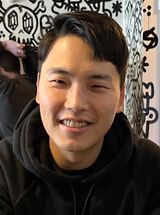
Jihoon Kim
Mentor: Junhyong Kim, PhD
Thesis Title: Single cell transcriptomics and spatial localization in mouse neurons
Research and Lab Description: I characterized the distribution of RNA within dendrites of neurons using novel experimental and image analysis techniques to study how their localization might affect neuronal function. Junhyong's Lab is the ideal environment for someone looking to perform their own experiments and analyze the data from experiments!
Post PhD Plans: Currently a PostDoc at CHOP, but also open to other opportunities!
Mentor Comment: Amongst many students I’ve had the fortune to have in my lab, Jihoon was one of the students that showed the most growth as a scientist. He overcame some severe personal challenges to complete a technically challenging dissertation that involve both cutting-edge wetlab work and novel computational analysis. I was proud to have him as my student.
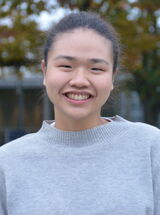
Michelle Lee
Mentors: Klaus Kaestner, PhD; Mingyao Li, PhD
Thesis Title: Single-cell multimodal profiling of human pancreatic islets in non-diabetic and type 2 diabetic cases
Research and Lab Description: My research focused on multimodal profiling of human pancreatic islets in non-diabetic and type 2 diabetic states. I truly enjoyed the unique interdisciplinary environment fostered by my co-advisors Dr. Mingyao Li and Dr. Klaus Kaestner, which allowed me to develop computational expertise while pursuing novel biological questions. Their complementary guidance transformed me into a researcher capable of navigating diverse methodologies to address compelling scientific challenges.
Post PhD Plans: Postdoctoral Fellow, Stanford University & Arc Institute
Mentor Comment: Mingyao Li: Michelle has a genuine passion for genomics and scientific discovery, with a natural curiosity that will take her far in research. She showed remarkable persistence in completing a highly challenging project, and her efforts led to an interesting biological discovery that might have otherwise been overlooked. Michelle also brings a cheerful energy to any environment and is always a pleasure to talk with.
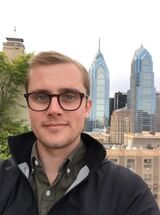
Jacob Leiby
Mentor: Dokyoon Kim, PhD
Thesis Title: Advancement and application of deep learning techniques for biomedical image analysis: Diagnostics, risk, and biomarker prediction
Research and Lab Description: My thesis research focused on the development and application of deep learning methods for biomedical image analysis, including biomarker prediction from histology images and disease detection and risk prediction from CT scans. Dr. Dokyoon Kim and the lab provided me with support, encouragement, and friendship throughout my PhD.
Post PhD Plans: Post-PhD, I will join Dr. Zhi Huang’s lab at Penn as a post-doc researching representation learning for multimodal histology imaging data.
Mentor Comment: Jake initially expressed a strong interest in working on AI and machine learning projects, despite having little prior experience in the field. Now, I can confidently say he has become an expert in applying AI to medicine. He is highly self-motivated and disciplined, and he has done an outstanding job.

Carter Merenstein
Mentors: Rick Bushman, PhD; Ron Collman, MD
Thesis Title: Disease and Dysbiosis: Three Studies in the Respiratory Tract Microbiome
Research and Lab Description: My research focused on changes to the respiratory tract microbiome in three different disease contexts. My advisors Rick Bushman and Ron Collman pushed me to expand my skills from computational biology into the wet lab and clinical research, supporting me in becoming a more well-rounded and independent scientist.
Post PhD Plans: Postdoctoral researcher, Boston Children's Hospital & Harvard School of Public Health
Mentor Comment: Rick Bushman: Carter’s productivity has been remarkable. Since coming to Penn, he has published two papers as first author, five papers as a co-author, and a review article as first author. Remarkably, two more first author papers are close to submission!! Carter has also distinguished himself with his efforts in mentoring and outreach. He is consistently cheerful and willing to help others. Really a terrific young scientist.
Ron Collman: Carter is super-smart, independent and self-directed, productive, with remarkable breadth of computational to wet-bench to even clinical work, and he is clearly going to be leading the science in the future with exciting questions and innovative new approaches. Yet he is such a nice person and enjoyable to work with. Great job with his PhD work and very excited to see what he does in the future!

Zhen Miao
Mentor: Junhyong Kim, PhD
Blavatnik Family Fellowship Recipient
Thesis Title: Statistical foundations of single cell open chromatin data
Research and Lab Description: My research focused on statistical foundations of single cell open chromatin assays. Dr. Kim provided great freedom and invaluable guidance throughout my research journey. He taught me to form the good habit of always reflecting on results and thinking critically.
Post PhD Plans: Postdoctoral Fellow, University of Pennsylvania
Mentor Comment: I first met Zhen when he was a special visiting student who took my computational biology course. Not only was he the top student in the class, but he also came up with some advanced algorithmic solutions that I had not directly taught. I thought he had incredible problem-solving talent. Indeed, this turned out to be true. Zhen has been one of the most organized, productive, and talented students I’ve had.
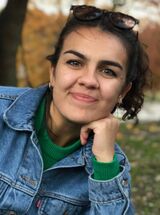
Parisa Samareh
Mentor: Shelley Berger, PhD
Thesis Title: PRC2 mediated repression in CD8 T cell exhaustion
Research and Lab Description: The Berger Lab studies epigenetic regulation in a variety of model systems, focusing on chromatin mechanisms underlying aging, gametogenesis, cancer, T cell biology and animal behavior.
Post PhD Plans: Looking to acquire a job in industry, ideally focused on cell therapies.
Mentor Comment: Parisa has successfully defended a remarkable PhD thesis exploring how the Polycomb Repressive Complex 2 (PRC2) regulates T cell exhaustion—requiring a masterful blend of rigorous experimentation and elegant computational analyses. Beyond her scientific contributions, Parisa was a generous and collaborative lab member, contributing to multiple co-authored publications and enriching our research environment. We are so proud of all she has accomplished—congratulations, Dr. Samareh!

Robert Wang
Mentor: Yi Xing, PhD
Thesis Title: Combining short- and long-read transcriptome sequencing to improve genetic diagnosis in Mendelian disease
Research and Lab Description: Broadly, the Xing lab develops high-throughput genomic technologies and computational methods to study RNA processing and its regulation, with applications in human genetics, precision medicine, and cancer immunotherapy. My thesis research focused on using long-read transcriptome sequencing to characterize the functional effects of rare genetic variation and their contributions to Mendelian disease.
Post PhD Plans: Over the summer, I plan to wrap up a few remaining projects in the lab while applying for postdoctoral positions and fellowships. Ideally, I hope to begin my postdoctoral research by the end of the year. During this next stage, I aim to work on projects that use long-read genome sequencing to characterize structural variation in human populations and disease.
Mentor Comment: Rob’s thesis research has had a transformative impact on our lab. He made significant contributions to the development of novel long-read RNA sequencing technologies, as well as computational methods for interpreting transcriptome variation from long-read data. Rob is exceptionally intelligent, driven, and resilient. It has been a true privilege to work with Rob as a mentor and colleague.
Combined Degree, MD-PhD
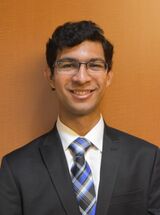
Rachit Kumar
Mentor: Marylyn Ritchie, PhD
Thesis Title: Graph Neural Networks for Interpretable Biomedical Data Analysis in Genomics and Structural Biology
Research and Lab Description: In the Ritchie Lab, I was able to work on a variety of projects and collaborate with many labs, which was an incredible boon to my research and allowed me to explore a variety of domains within biomedical informatics. My dissertation research involved the use of graph and network representations of biomedical data for a variety of downstream tasks, including predicting disease and the affinity of drugs as they bind to proteins.
Post PhD Plans: Completing medical school requirements
Mentor Comment: Rachit Kumar was born to be a researcher. He is incredibly curious and insightful, always asking deep questions about his own research projects as well as those being done by others. We will miss his unwavering support and collaboration in the lab. Congratulations, Rachit!
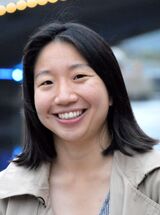
Jessica Lam
Mentor: Gerd Blobel, MD, PhD
Thesis Title: Interrogating YY1's role in chromatin organization and transcription throughout the cell cycle
Research and Lab Description: In Gerd Blobel’s lab, I integrated various genomics techniques to study chromatin structure and gene expression dynamics. My thesis research explored the role of 3D genome organization and epigenetics in gene regulation, focusing on the function of architectural transcription factor YY1 throughout the cell cycle.
Post PhD Plans: Completing medical school requirements
Mentor Comment: Jessica carried out beautiful, thorough and highly impactful work on the regulation of genome folding. She is absolutely outstanding.

Jonathan Sussman
Mentor: Kai Tan, PhD
Thesis Title: Dissecting the tumor immune microenvironment of pediatric and epigenetically-driven glioma
Research and Lab Description: The Tan Lab uses multiomics approaches to study gene regulation in tissue development and cancer. My thesis research focused on the interplay between dysregulation of tumor cells and the immune microenvironment in the setting of pediatric brain tumors.
Post PhD Plans: Completing medical school requirements
Mentor Comment: It has been a privilege to mentor Jonathan. His dissertation work has made substantial contributions to the field of high-grade glioma research. Throughout his doctoral training, Jonathan has consistently demonstrated excellent communication skills and an impressive level of energy and enthusiasm for his research.

